 You stand at the podium or in the classroom waiting to begin. You have all the symptoms of person who has to do public speaking and doesn’t do it all the time. You’re nervous. Your sweaty hands shake. Your knees wobble. You adjust clothing and eyeglasses. All those things you do when you are uncomfortable surface. Invisible or magnified, these involuntary twitches grip your entire body.
You stand at the podium or in the classroom waiting to begin. You have all the symptoms of person who has to do public speaking and doesn’t do it all the time. You’re nervous. Your sweaty hands shake. Your knees wobble. You adjust clothing and eyeglasses. All those things you do when you are uncomfortable surface. Invisible or magnified, these involuntary twitches grip your entire body.
But, you can do this. You have Power–PowerPoint that it is. With it you won’t skip a beat. It will make you brave. Or, so you think. Your eye contact with the audience will be diminished. The audience won’t see your passion for the subject because you are reading from the screen, but you know you are there because you are the subject matter expert (SME) and that means whatever you do will be fine. Or, will it?
You begin doubting yourself: should you even be here? And, worst of all, while you stand there waiting, you are losing credibility. Then, disaster strikes! Something is wrong with equipment and your visual presentation won’t work! Do you “tap dance” or tell jokes until the equipment is working again? Or, do you go on with the show?
The simple path to good communication is sometimes hard to find however obvious it seems on the surface. The presentation isn’t the presentation.
Sometimes, it’s good to find lighter voice to tell us what we need to hear. And, she’s much nicer than me in talking about it.
I have enlisted the aid of Lorraine Ranalli, Philadelphia communications expert, and reposting her article from LinkedIn.
Don’t Let Microsoft Co-opt Your Presentation
At a restaurant, do you ask for a cola or a Coke?
After showering, do you reach for a cotton swab or a Q-tip?
When you tell someone to look up something on the Internet do you say, “Conduct a web search,” or “Google it”?
Do you have parents or grandparents who reach for Kleenex instead of tissues?
Perhaps you’re from the generation that made Xeroxes instead of copies.
Most of us recognize the marketing genius of companies that so expertly align their brands with a product that the two become synonymous.
Whether intentional or not, Microsoft is one of those brands. For better or worse—I will argue the latter—MS PowerPoint has become synonymous with presentation.
I mean no disrespect to Microsoft and no disrespect to the millions who use it. I draw the line with the synonymy that has become accepted practice in business and academia.
PowerPoint is an effective visual aid for public presentations but it is no substitute for the presenter.
When conducting public speaking workshops, I often have to re-educate participants as to the definition of a presentation. Because of excellent marketing and subsequent habitual usage, many don’t even think about addressing an audience without first putting together a PowerPoint. In fact, many rely on PowerPoint as a means of deflecting jitters, keeping organized or saving prep and practice time. The result can be disastrous for unskilled presenters.
Public Speaking Rule #1: You are the presentation! Your PowerPoint or any audio-visual aid is just that, an aid. Your visual aids should be gathered and put together after you’ve researched, outlined, and crafted your presentation.
You wouldn’t ice a cake before baking it, would you? (I can bring food into any conversation!)
At best, preparing your PowerPoint prior to researching and outlining your speech will likely leave you with unnecessary slides. At worst, you’ll have a very boring presentation.
I know some reading this are thinking, “I don’t care if I’m boring as long as I can get through the presentation and the audience has something other than me to focus on.” I’ve heard such comments from college students and from professionals. Don’t concentrate on getting through your presentation. Concentrate on getting TO it.
Think about the types of presentations you enjoy attending. Do you like to read or be read to, or do you prefer an engaging speaker?
I realize most of us aren’t born public speakers but I also have proof that with a little coaching 99% of us can become better public speakers. In addition to my personal experience, I’ve had the honor of helping hundreds of professionals and students through my classes and workshops.
So, why settle for mediocrity, especially if a promotion or a big-ticket deal is at stake?
When you have the opportunity to address a live audience, embrace it! Don’t waste your audience’s time. They can view a PowerPoint from the comfort and convenience of their PCs, tablets, or phones.
For tips to creating effective PowerPoint slides, please consider the wisdom of comedian Don MacMillan: “Life and Death After PowerPoint.”
*Random fact: Invented in 1920 by Leo Gerstenzang, Q-tips were first called Baby Gays.
About the author: Lorraine Ranalli is a Philadelphia media personality, writer, speaker, and soft skills trainer. She currently directs communications and marketing for CUNFL (Credit Union Network for Financial Literacy). Her book Gravy Wars: South Philly Foods, Feuds & Attytudes is a humorous narrative about the Italian-American culture—its traditions, superstitions, and idiosyncrasies—complete with 70 family recipes.
***
Thanks so much to our guest blogger, Lorraine Ranalli. Please check her site and book. Meanwhile, Happy Training.
By the way, this is not all I do. I believe in connections. After 30 plus years of acting, speaking, training and coaching, I can’t help believing that effective communication is critical in both training and development as well as education. If you are interested in my approach on this blog or in other offerings on the site, you might also be interested in my book, The Cave Man Guide to Training and Development. “Cave” and “Man” are separate on purpose. The “cave” is simply where we train. I promise there will be a II and III based on my articles here. My personal blog site, Shaw’s Reality, is where I look at the world’s reality from a variety of perspectives. I have also published a young adult science fiction dystopian novel, In Makr’s Shadow.
By all means though, check out The Free Management Library’s complete training section.
 Sections of this topic
Sections of this topic















